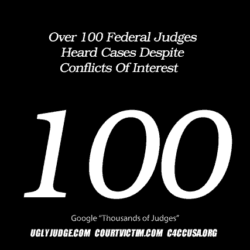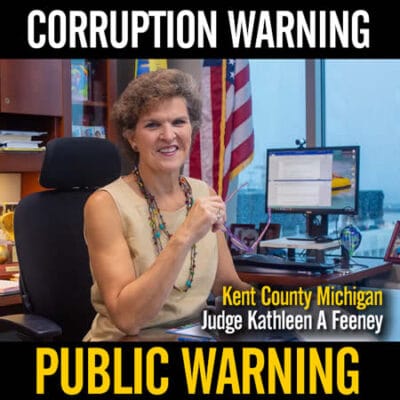
Nearly 700 federal court cases from 2010 to 2018 were heard by 131 judges who had financial ties to a company that was part of the case, the Wall Street Journal reported, and in two-thirds of those cases they ruled in favor of the company. KEY FACTS Some 131 federal judges heard 685 cases in which they or family members held stock in a company involved in the case, the Journal reported Tuesday. After being contacted by the Journal, 56 of the 131 judges had their staff begin to tell people in 329 lawsuits that the judge should have recused themselves. In 21 cases, a judge or family held more than $50,000 in stock of a company involved in the litigation, while in 173 cases the holdings were higher than $15,000. Rodney Gilstrap, the chief federal judge for the Eastern District of Texas, led his peers with 138 cases in which he had a conflict of interest. New judges could be assigned to those cases—potentially changing the ruling—and some people who lost cases have already asked for that, the Journal reported. Key Quote “If you are a federal judge, you should not be holding individual stocks,” said Andrew O’Connor, whose suit against Comcast was sent to a state court—a development favored by the company—by Judge Lewis Babcock, of the U.S. District Court of Colorado. At the time, Babcock or his family owned at least $15,001 in Comcast stock and may have owned as much as $50,000. For his part, Babcock said “I dropped the ball.” His office did not have an adequate process for checking for conflicts of interest, he said. Chief Critic The report “raises a more systemic problem of judges chronically neglecting their duty to disqualify in such… Read More

Judge Kathleen A Judge Kathleen Feeney Judge Kathleen Feeney is a 3rd District of the Michigan Court of Appeals court judge. Won by small margin a seat in office on January 1, 2023. Her term ends January 1, 2029. Judge Kathleen Feeney is a graduate of Michigan State University College and University of Illinois College of Law. She is a chief judge pro tem of the Kent County Circuit Court. She has practiced in the family division of the circuit court for 22 years and a seek’s election to the Michigan Court of Appeals in district 3 to replace Judge David Sawyer. Judge Kathleen Feeney helped create a Kent County Courthouse therapy dog program and the Kent County truancy court and educational neglect diversion program. Judges Are Locking Up Children for Noncriminal Offenses Like Repeatedly Disobeying Their Parents and Skipping School In Michigan, judges have sent children to locked detention centers for refusing to take medication or failing to attend online class. For testing positive for using marijuana. For repeatedly disobeying their parents. Even as other states move toward reforms focused on keeping nonviolent juvenile offenders in the community, Michigan continues to lock up children for minor transgressions that aren’t actually crimes: technical violations of probation or status offenses like truancy or staying out after curfew. A dramatic example of this occurred last summer, when the case of Grace* provoked national outrage. A 15-year-old from suburban Detroit, Grace was sent to detention for violating her probation on earlier charges of theft and assault by failing to do her online schoolwork. Her situation was unusual. She was incarcerated for breaking a single rule of her probation during a pandemic, even as her school district said it wouldn’t penalize students and the… Read More





